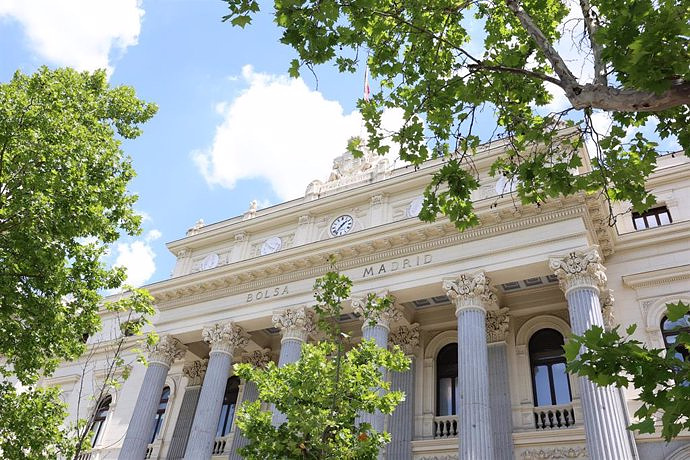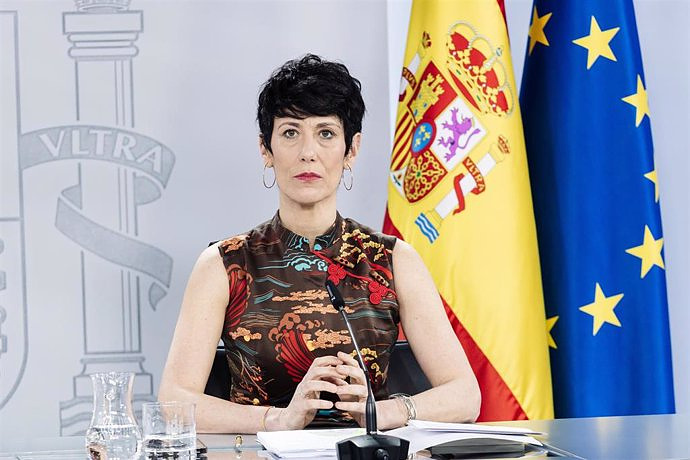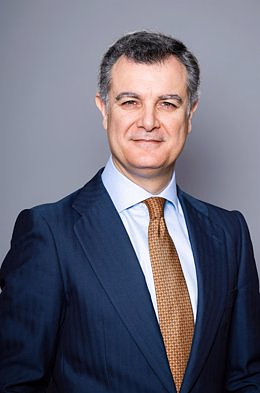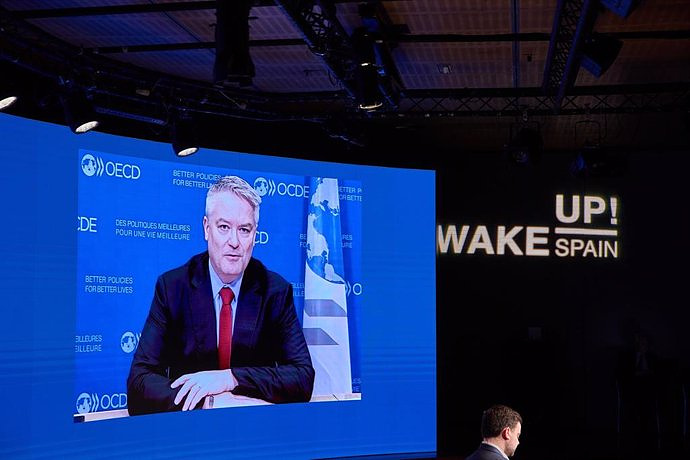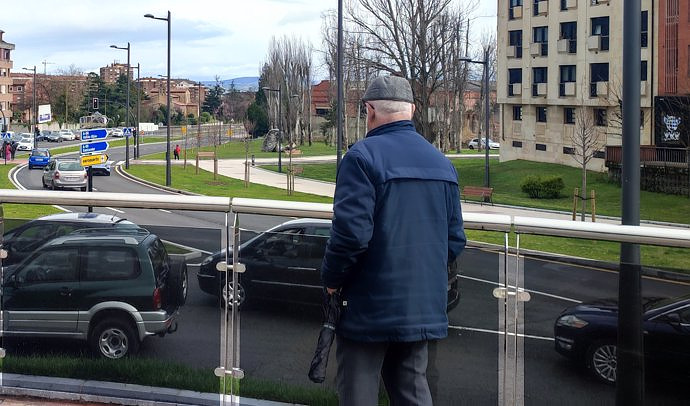MADRID, 3 Dic. (EUROPA PRESS) -
King Felipe VI has warned this Friday of the "fragility" of the world order, which also extends to the countries themselves, thus causing "international implications", and has advocated "the urgent need" to build "an economic model that has as its aim to include and uplift everyone.
This was the statement made by the Head of State during the gala dinner for the centenary of the Master of Science in Foreign Service (MSFS), held in Washington, some studies that the King himself completed in 1995 and whose mission is to prepare women and men to be creative leaders in the public, private, and nonprofit sectors of international affairs.
In this regard, Felipe VI has confessed that attending this event, along with former classmates, is "very special" because it holds "excellent memories" of that time and has congratulated those who have received the special centenary award, especially his Icelandic friend, Ragga Árnadóttir. "I can personally attest to her merits and how much -- and well -- she has lived those values that we now celebrate," he stressed.
Taking advantage of the centenary, Felipe VI has indicated that this event is "an opportunity to explore what is to come" and has asked "to take just a few minutes" to think "about the world that we are going to inhabit", and "to reflect on what that this world will demand of our political leaders, our diplomats, civil servants, businessmen and society in general". "And what is more important, we should also explore what all this means for the role of universities," he emphasized.
On this point, the King explained that "the world of 2022 seems as challenging as that of 1922" and "even more" because, in his opinion, "we are entering a period of great changes in the international order". "Changes of a magnitude that we had not witnessed in the last three decades, when the Iron Curtain collapsed," he said.
Thus, Felipe VI has cited the "increase in the speed of change" that has caused societies to "change exponentially", without us realizing it. "The main driver of this exponential change is innovation and technological disruption. In almost all fields we are witnessing revolutionary innovations, be it in health and all biosciences, or in robotics, cybernetics and artificial intelligence, to name a few. some," he said.
In his opinion, "innovations bring immense benefits", but also "great challenges": from "the reduction of public space for debate, to changes in the labor market, which in turn are causing generational imbalances and the distribution of income"; or also "the appearance of new threats to security, up to the general exposure to toxic or false information."
As he explained, this also influences "the future of higher education", noting at the same time that "strategic foresight should become a core skill set for students passing through our universities." "A fast-moving world requires people who can foresee and navigate the future," she has noted.
"No one should graduate from university without digital skills. Not understanding how basic technologies work will be a huge impediment to effective leadership," he said.
At another point, Felipe VI has assured the duty to "understand the implications of technology for society." "In the realm of world affairs, this means, in particular, training people who can lead effective technology diplomacy," he recalled.
However, he has also stressed that "the second characteristic of global affairs today is interdependence." "We are all interconnected in an unprecedented way. The innovation that takes place in Silicon Valley can disrupt entire industries on the other side of the planet," she warned.
An "interdependence", according to the King, which "is breaking down as we speak". "If the war in Ukraine teaches us anything, it is that our relations can easily fracture. The sanctions imposed on Russia in response to its illegal and unjustified invasion of Ukraine have undone more than thirty years of slow economic integration," the monarch argued. emphasizing that, after the war, diplomatic relations will no longer be as before.
In this context, the head of state has spoken about the "fragility" of current world politics. "Not only the fragility of the world order itself, but also that of many of its parts. And here I would like to make a special reference to the equity and justice of our societies, and to the urgent need to build an economic model that aims to include and elevate everyone", he claimed.
According to the monarch, the "degree of polarization that we observe in the Western world is difficult to explain without understanding the social tensions that exist in many countries." "Domestic fragility has international implications," he stressed.
For the monarch, it is "much more difficult to maintain the international liberal order if there is political discord within the liberal democracies of the world." In this regard, he has pointed out that "the border between domestic and global issues is getting thinner and, therefore, university graduates should be able to connect the two."
"We would do well to instill in students the desire to understand the problems of others and to be empathetic. This will make them better leaders, but also better intellectuals, because they will also see the world through the eyes of others (... ) It may be a utopia, but I think it's worth trying," Felipe VI defended.
Finally, he has asked graduates to leave the university "with a strong sense of public service." This vocation, the King has claimed, has to do "with concern for the common good, with the desire to address common challenges and with the promotion of a shared vision of the world".

 Exploring Cardano: Inner Workings and Advantages of this Cryptocurrency
Exploring Cardano: Inner Workings and Advantages of this Cryptocurrency Seville.- Economy.- Innova.- STSA inaugurates its new painting and sealing hangar in San Pablo, for 18 million
Seville.- Economy.- Innova.- STSA inaugurates its new painting and sealing hangar in San Pablo, for 18 million Innova.- More than 300 volunteers join the Andalucía Compromiso Digital network in one month to facilitate access to ICT
Innova.- More than 300 volunteers join the Andalucía Compromiso Digital network in one month to facilitate access to ICT Innova.-AMP.- Ayesa acquires 51% of Sadiel, which will create new technological engineering products and expand markets
Innova.-AMP.- Ayesa acquires 51% of Sadiel, which will create new technological engineering products and expand markets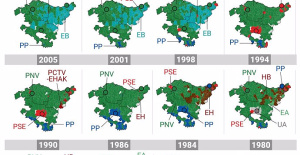 Historical results of the 2024 Basque elections, municipality by municipality
Historical results of the 2024 Basque elections, municipality by municipality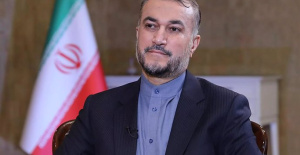 Iran assures that any action by Israel will have an "immediate and highest level" response: "They will regret it"
Iran assures that any action by Israel will have an "immediate and highest level" response: "They will regret it"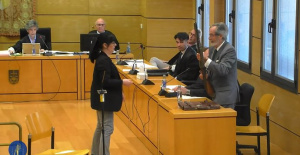 The Ciudad Real Court sentences the man who killed a thief with two shots in his home to 6 years
The Ciudad Real Court sentences the man who killed a thief with two shots in his home to 6 years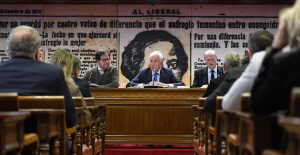 PP and PSOE clash in the Senate over Koldo's appearance after a socialist writing on a work plan
PP and PSOE clash in the Senate over Koldo's appearance after a socialist writing on a work plan How Blockchain in being used to shape the future
How Blockchain in being used to shape the future Not just BTC and ETH: Here Are Some More Interesting Coins Worth Focusing on
Not just BTC and ETH: Here Are Some More Interesting Coins Worth Focusing on Valencia displays its "innovative and technological potential" at the Emerge Americas event in Miami
Valencia displays its "innovative and technological potential" at the Emerge Americas event in Miami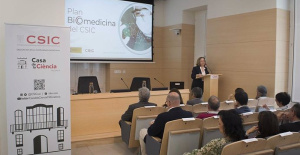 The CSIC incorporates the challenges of robotics, nanotechnology and AI in the new strategic plan for biomedicine
The CSIC incorporates the challenges of robotics, nanotechnology and AI in the new strategic plan for biomedicine Innovation allocates 9.1 million to train 74,000 people and guarantee digital inclusion
Innovation allocates 9.1 million to train 74,000 people and guarantee digital inclusion LIFE SPOT manages to develop new green treatments that eliminate groundwater contamination
LIFE SPOT manages to develop new green treatments that eliminate groundwater contamination A million people demonstrate in France against Macron's pension reform
A million people demonstrate in France against Macron's pension reform Russia launches several missiles against "critical infrastructure" in the city of Zaporizhia
Russia launches several missiles against "critical infrastructure" in the city of Zaporizhia A "procession" remembers the dead of the Calabria shipwreck as bodies continue to wash up on the shore
A "procession" remembers the dead of the Calabria shipwreck as bodies continue to wash up on the shore Prison sentences handed down for three prominent Hong Kong pro-democracy activists
Prison sentences handed down for three prominent Hong Kong pro-democracy activists ETH continues to leave trading platforms, Ethereum balance on exchanges lowest in 3 years
ETH continues to leave trading platforms, Ethereum balance on exchanges lowest in 3 years Investors invest $450 million in Consensys, Ethereum incubator now valued at $7 billion
Investors invest $450 million in Consensys, Ethereum incubator now valued at $7 billion Alchemy Integrates Ethereum L2 Product Starknet to Enhance Web3 Scalability at a Price 100x Lower Than L1 Fees
Alchemy Integrates Ethereum L2 Product Starknet to Enhance Web3 Scalability at a Price 100x Lower Than L1 Fees Mining Report: Bitcoin's Electricity Consumption Declines by 25% in Q1 2022
Mining Report: Bitcoin's Electricity Consumption Declines by 25% in Q1 2022 Oil-to-Bitcoin Mining Firm Crusoe Energy Systems Raised $505 Million
Oil-to-Bitcoin Mining Firm Crusoe Energy Systems Raised $505 Million Microbt reveals the latest Bitcoin mining rigs -- Machines produce up to 126 TH/s with custom 5nm chip design
Microbt reveals the latest Bitcoin mining rigs -- Machines produce up to 126 TH/s with custom 5nm chip design Bitcoin's Mining Difficulty Hits a Lifetime High, With More Than 90% of BTC Supply Issued
Bitcoin's Mining Difficulty Hits a Lifetime High, With More Than 90% of BTC Supply Issued The Biggest Movers are Near, EOS, and RUNE during Friday's Selloff
The Biggest Movers are Near, EOS, and RUNE during Friday's Selloff Global Markets Spooked by a Hawkish Fed and Covid, Stocks and Crypto Gain After Musk Buys Twitter
Global Markets Spooked by a Hawkish Fed and Covid, Stocks and Crypto Gain After Musk Buys Twitter Bitso to offset carbon emissions from the Trading Platform's ERC20, ETH, and BTC Transactions
Bitso to offset carbon emissions from the Trading Platform's ERC20, ETH, and BTC Transactions Draftkings Announces 2022 College Hoops NFT Selection for March Madness
Draftkings Announces 2022 College Hoops NFT Selection for March Madness
